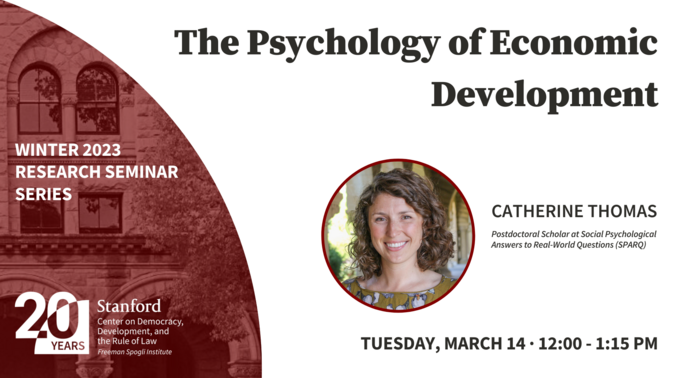The Psychology of Economic Development
The Psychology of Economic Development
Tuesday, March 14, 202312:00 PM - 1:15 PM (Pacific)
Virtual to Public. Only those with an active Stanford ID with access to E008 in Encina Hall may attend in person.

Every year, millions of low-income households around the world receive over $100 billion in anti-poverty aid. This research shows how psychologically savvy and culturally attuned narratives of anti-poverty policies can both improve recipients’ economic outcomes and build public support. This research suggests that status quo narratives of aid that are focused on recipients’ neediness and helplessness may paradoxically maintain cycles of stigma, prejudice and poverty. However, a series of experiments in East and West Africa demonstrate that these cycles can be interrupted when narratives represent aid as an opportunity for recipients to realize their agency and aspirations in culturally resonant ways. Lab and field experiments with low-income recipients of aid in East and West Africa demonstrate how such narrative-based interventions can enhance the cost-effectiveness of large-scale anti-poverty programs. Online experiments in the US show how such narratives can mitigate welfare-related prejudice and build support for policies like universal basic income.
ABOUT THE SPEAKER

Virtual to Public. Only those with an active Stanford ID with access to E008 in Encina Hall may attend in person.
